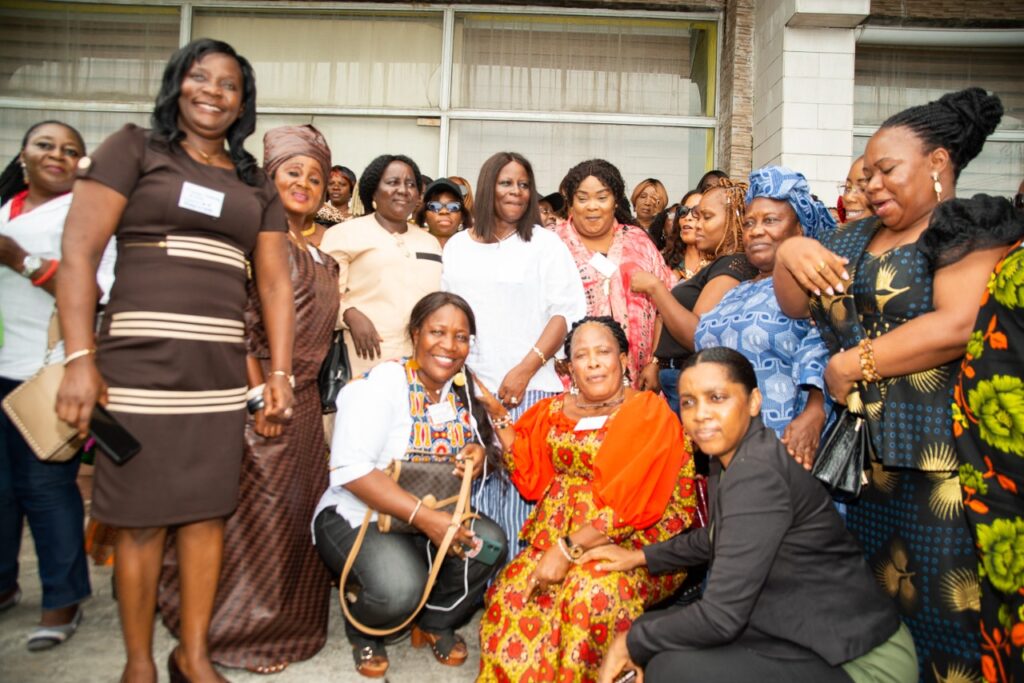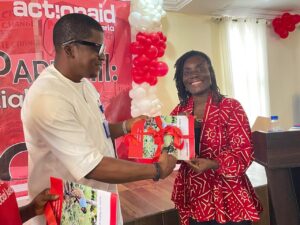Women Legislative Caucus, Partners Heighten Efforts For Increased Women Representation in the Legislature

By: Laymah Kollie
Liberia: A two day networking and workshop session aimed at exposing and enriching women aspirants with the necessary tools to ensure a win for more women in the Legislature has been concluded.
The Women Legislative Caucus of Liberia (WLCL) in collaboration with UN Women, funding from the Government of Sweden initiated the sessions following the milestone passage of the amended New Elections Law on 30% quota. The NEL section 4.5 provides that Political Parties should submit a candidate listing of 30% of either gender and ensure same in parties leadership. This endeavor supports the urge for more women representation in leadership and national decision making.
Women in the Legislature currently represents 11% of 103 seats, which is predominantly low to sub-Saharan Africa and central with 26 and 17 percent respectively.
Women aspirants during the sessions acquired information on the calendar and registration guidelines of the National Elections Commission (NEC), campaign financing and Violence against women in elections, key factors confronting women political participation.
Ironically, the event catalogued collaborative support for women (women supporting women) resilience, impact making and hard work as major tools for effective political participation.
Judging from the low representation of female at the legislature, the UN Women Liberia Country Representative Ms. Comfort Lamptey said the need to exert more efforts for women representation can’t not be overlooked.
She wants to see a new look at the Liberian legislature, especially with the presence of female lawmakers after the 2023 elections, as she said the UN Women is also making every efforts with it’s partners, in investing in order to provide a zero space for violence against women in the pending elections. Lamptey cautioned the women to be as strategic as they can, in how they make the decision to contest, or support other female candidates. “Certainly, 2023 or early 2024 the Legislature should be carrying different look in terms of profile if we made progress. As for UN we really have a very important role to play both before, during and after elections, to support the Government of Liberia, Civil Society to prevent conflict and to maintain the peace the country is enjoying. So one of the areas we are also particularly concern about is investing in order to support prevention of violence that is highlighted against women in politics,” UN Country Representative Comfort Lamptey emphasized.
According to the Women Caucus Chair, Grand Bassa Senator Nyonblee Karnga-Lawrence, the low women representation at the Legislature is due to inadequate gender equality in politics; as such, there is need for political parties to generate policies that guarantee women equal participation with men. “Because of the barrier to political participation, most women do not experience equality in politics, although they have a right to participate in position on an equal basis with men. We need laws and policies to fix the system and right historical wrongs” she mentioned.
Sen Karnga-Lawrence hailed political parties that have concurred with the 30% female participation at Party’s level and appreciated International partners for their intervention in ensuring the passage of the bill. “As we look forward to the final signature of the President to make this a law, we want to thank all political parties that have made commitment to comply with the 30% and above. We thank our international partners especially UN Women and the United Nations Development Program, as well as Democracy International, Kvinna till Kvinna, National Democratic Institute, other donors and the diplomatic community, especially the Embassies of Ireland and Sweden, the EU Delegation and the United States Agency for International Development for all the support for the passing of this bill”, the WLCL Chair Karnga-Lawrence noted.
During the panel discussion to incorporate sharing of experiences from current and former women lawmakers, the need for resilience through tougher periods during and after elections was highlighted and the women aspirants were urged to speak out and support each other during the electoral processes.
The panel named traditional bushes/devils, stereotypes/negative portrayal of women and economic empowerment as some of the major factors confronting women political participation and politics.
“For me, violence is everyday because I am in the capital city and more critical on national issues as well as district issues. I got complicated battles”, Rep. Rustonlyn Suacoco Dennis, Representative District 4, Montserrado County.
However, the women aspirants lauded the Women Legislative Caucus for the forum and rallied international partners support for more engagements and training aimed at building their leadership capacity and readiness for the Legislature.
“With the different experiences shared by our panelists and mitigation ways, I’m adopting these strategies already in my electoral activities as 2023 draws closer,” Representative Aspirant, District 13, Montserrado County, Gayduo Princess Kennedy noted.
” We see and faced these violences everyday as women; so, having women at the national legislature enlightening us on way forward to sustainable elections is an opportunity for us. I’m grateful to UN Women and partners for the mind opener as we gear up for these electioneering processes”, Representative Aspirant, District 1, Maryland County, Lucy Jappay Mono.
Counties including Nimba, Grand Gedeh, Maryland, Sinoe, Grand Kru and Rivergee have not had women representation at the legislature in recent years, thus calls have been heightened to ensure more women are elected in those areas.
In the last 15 years there has been several unsuccessful attempts for affirmative action for women in politics in Liberia. In the absence of a strong legal framework, the percentage of women in the Legislature had fallen from 16% in 2006 to less than 13% in 2012, and 11% in 2014. After falling to under 10% in 2021, in 2022 the percentage is still under 11%.
By this and in consideration of article 5 of the constitution by which the Legislature is given the opportunity to enact laws encouraging the full participation of all citizens in Government.
On September 16, 2022 the Liberian Legislature finally passed the Electoral Reform bill with a provision that allows 30% gender participation.
With the argument that the rejection of the list for non compliance might infringe on one’s constitutional rights for participation, this law suggests a fine of $10,000 United States dollars for first time non compliance, and $15,000 second time non compliance and rejection for third violation. The defaulting political party, coalition or alliance of political parties upon paying the fines shall present to the commission, a plan and a program of action intended to incentivize gender participation in elections, with the views of complying with the 30% minimum threshold for each gender for every elections thereafter; and the commission shall approve such a plan and or program of action for implementation by the defaulting political party, coalition or alliance of political parties.



